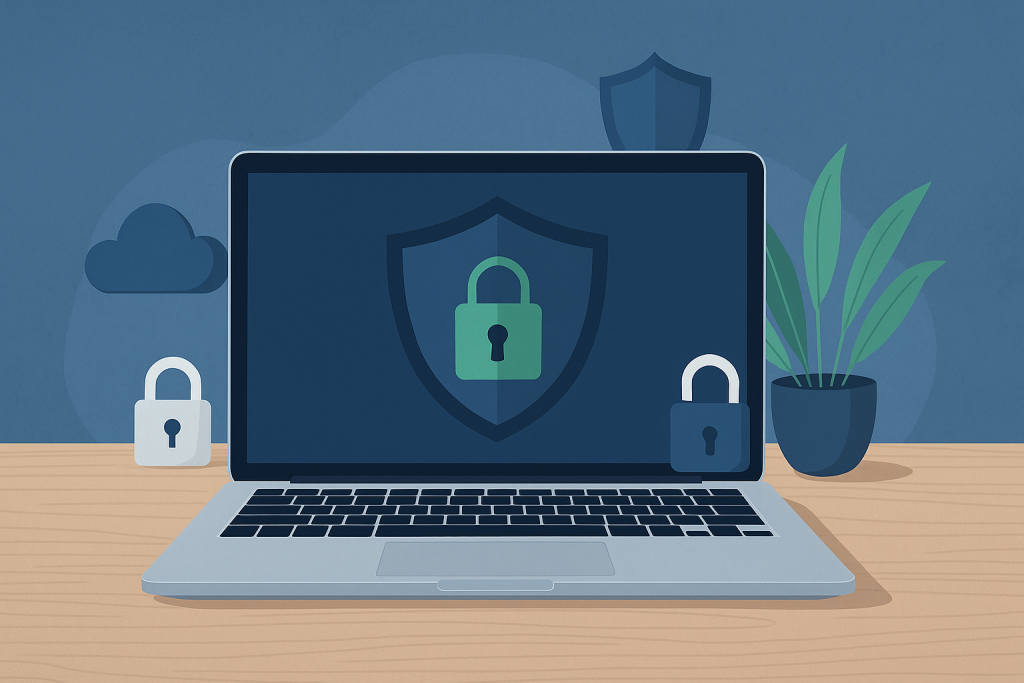Keeping your website safe and secure
WordPress is awesome. It’s flexible, mature, and incredibly user-friendly. With millions of websites relying on it daily, it’s no wonder WordPress powers such a large portion of the internet. But just like any powerful tool, it needs regular care. As your website grows and gains popularity, keeping your WordPress website safe and secure becomes more important than ever. A little prevention can save a lot of headaches - and help you sleep better at night.
Backup, backup, backup... always backup
Think of backups as your digital insurance policy. No matter how careful you are, things can still go wrong. Servers crash, hackers strike, or maybe you accidentally delete something you shouldn’t have. Without a backup, you risk losing all your hard work in a blink.
With a backup, though, you can roll back your website to a safe point and restore it with just a few clicks. Simple, right?
So, how do you back up your WordPress site? Plugins make it easy. Here are some of the most popular choices:
- UpdraftPlus - A reliable and user-friendly option with cloud integrations.
- BackupBuddy - Great for scheduled backups and quick site migrations.
- VaultPress - A Jetpack-powered backup solution from Automattic.
All of these allow you to automate backups and store them safely—either offsite or in the cloud.
If you manage multiple websites, however, you might want a centralized solution. That’s where ManageWP really shines.
Regular backups mean peace of mind. And peace of mind is priceless.
With ManageWP, you can keep automatic backups for all your sites, manage them from one dashboard, and even migrate them easily. On top of that, it comes with performance checks, uptime monitoring, and update management. In short - it’s a lifesaver for anyone running more than one site.
Protect Your Site with Security Plugins
Backups protect you after something goes wrong. Security plugins help make sure things never go wrong in the first place.
WordPress sites face all sorts of threats—malware, bots, brute-force attacks, and vulnerabilities in outdated plugins or themes. Fortunately, there are excellent security tools that make your site much harder to break into:
- Wordfence - Comprehensive firewall and malware scanning.
- Sucuri Security - Known for its robust monitoring and website cleanup.
- iThemes Security - Great for beginners and advanced users alike.
These plugins help block suspicious traffic, detect file changes, and alert you when something looks off.

But even the best plugin can’t save a site protected by “password123.”
Always use strong, unique passwords for your WordPress login and hosting panel. Consider a password manager like Bitwarden or 1Password to generate and store them securely.
Equally important - keep your site up to date.
Updates often include security patches that fix vulnerabilities before attackers exploit them. This goes for everything—WordPress itself, your theme, and every plugin you use. Make a habit of checking for updates weekly or enable automatic updates for trusted plugins.
Don't Forget About SSL!
An SSL certificate is one of those small details that makes a big difference. It encrypts the data transferred between your site and visitors, keeping it safe from prying eyes.
This is crucial if your site collects any sensitive information—such as login details or payment data. Modern browsers now even warn users when a site doesn’t use HTTPS, which can scare visitors away before they ever read a word of your content.
The good news is, SSL is no longer complicated or expensive. Most hosting companies now include SSL certificates for free. And if yours doesn’t, you can use Let's Encrypt which is easy to deploy and maintain so there are really no excuses to not have SSL certificate on your website.
Keep your digital home healthy
Security isn’t a one-time task - it’s an ongoing routine. Just like maintaining your car or updating your phone, it requires a little attention here and there. Back up regularly, use trusted plugins, update often, and make SSL your default.
Doing these small things consistently can make a massive difference in keeping your WordPress website safe and secure.
Conclusion
Creating and maintaining a website can take weeks or months of hard work. Watching it finally come together is rewarding. Losing it all overnight due to a hack or server failure? Not so much.
So, don’t take chances. Pick a backup plugin, enable SSL, install a good security suite, and update your site often. You’ll spend a few minutes setting it up but you’ll save yourself countless hours of stress later.
With a bit of preparation, your WordPress site will stay safe, sound, and running strong, just the way it should.